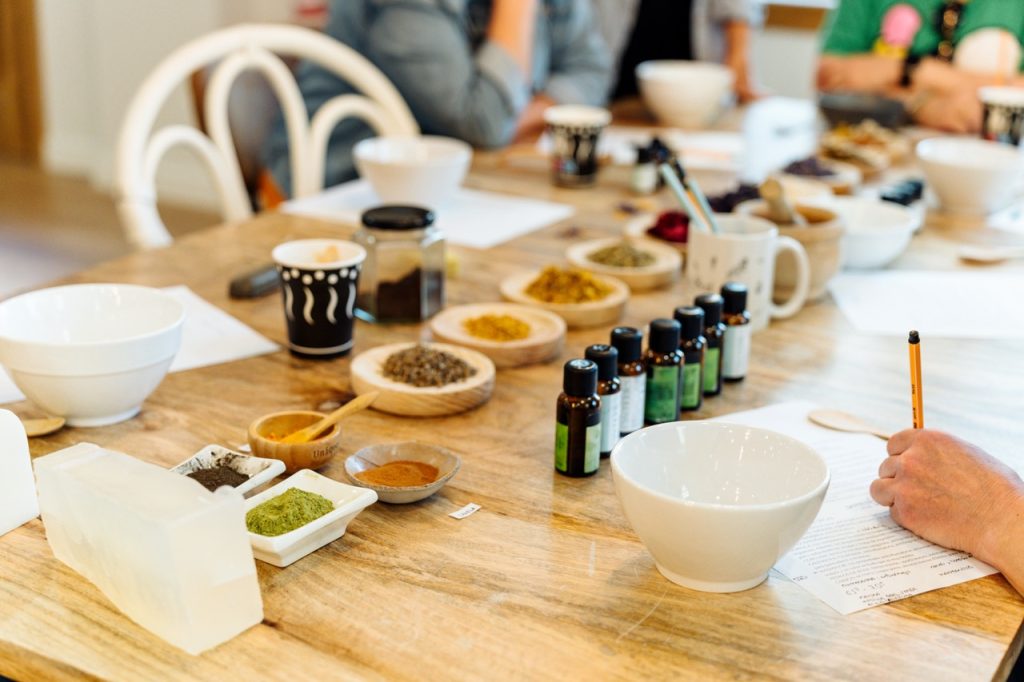Did you know that aluminium in your deodorant has been linked to health issues most notably to breast cancer? Aluminium-based compounds are the active ingredients in antiperspirant.
They block the sweat glands to keep sweat from getting to the surface of your skin.
Some research has suggested that these aluminium compounds may be absorbed by the skin and cause changes in estrogen receptors of breast cells. Some research has focused on parabens (which are preservatives used in some deodorants) and antiperspirants that have been shown to mimic the activity of estrogen in the body’s cells. It has been reported that paragons have been found in breast tumours, however there is no evidence that they directly cause breast cancer.
So you’ve decided to make the switch to a natural deodorant?
We all know about natural products; especially natural and organic products are good for us. However, when it comes down to it, we want those natural and organic products to work better than just ‘good’ you want them to really WORK. Why make the switch? Maybe you’re concerned with:
- Health Risk
- Skin irritation
- Chemicals
- Clogged pores
- Halting your natural toxin release system
How to get the best results?
- Go without for a few days (detox)
- Exfoliate underarms
- Apply twice a day for the first week (if needed)
- Make sure underarms are dry before applying
- Limit or remove foods that maybe causing a gut imbalance.
- Certain foods contribute to weird smells coming from our bodies
- Limit or avoid : Garlic, onion, caffeinated drinks
- Supplements such as wheatgrass and chlorophyll may act as a natural deodorisers when added to a balanced diet
More information on natural and organic products:
Read the label to make sure you know what is in your products.
- Natural – meaning products come from the earth (plant based)
- Organic – sourced from sustainable & healthy means
- Smells are deceiving – make sure they are using essential oils, not fragrances.
Preservatives – what is a natural preservative?
- Vitamin E oil
- Rosemary Oil Extract
- Grape seed Extract
- Sodium Levulinate is sodium salt produced from levelling acid and its one of the ingredients commonly used as a preservative in your skin creams. It also helps to condition and tone the skin, which is why its such a popular ingredient
- What makes levelnic acid and sodium. Levulinate so popular among cosmetic manufacturers is the fact that is a potent antimicrobial agent that can kill off just about any aerobic microorganism in your beauty products. At the same time, it Won’t affect PH levels or the colour of your beauty products. That makes it a highly valuable ingredient, one that works in the background to keep your beauty products from spoiling without altering the integrity of the products drastically. (safecosmeticsaustralia.com.au)
- P-Anisic acid is found naturally in anise. It is a white crystalline solid which is insoluble in water highly soluble in alcohol and double in ether, and ether acetate.
( CHEMICAL) Preservatives
Are you aware of what preservatives you’re putting on your body?
- Potassium sorbate is a good example of a commonly used preservative in cosmetics. While the original ingredient is plant derived, the commercial grade ingredient is produced synthetically in a lab, initial research shows that it can be linked to irritation and allergies (dermatis). Potassium is suspected of causing skin or sense organ toxicity, according to sources compiled by www.cancer.org. (https://www.cancer.org/cancer/cancer-causes/antiperspirants-and-breast-cancer-risk.html)
Learn more:
Safe cosmetics Australia The toxin-free Campaign: safecosmeticsaustralia.com
www.scorecard.org
www.chemicalmaze.com
www.ethicalbalance.com.au



